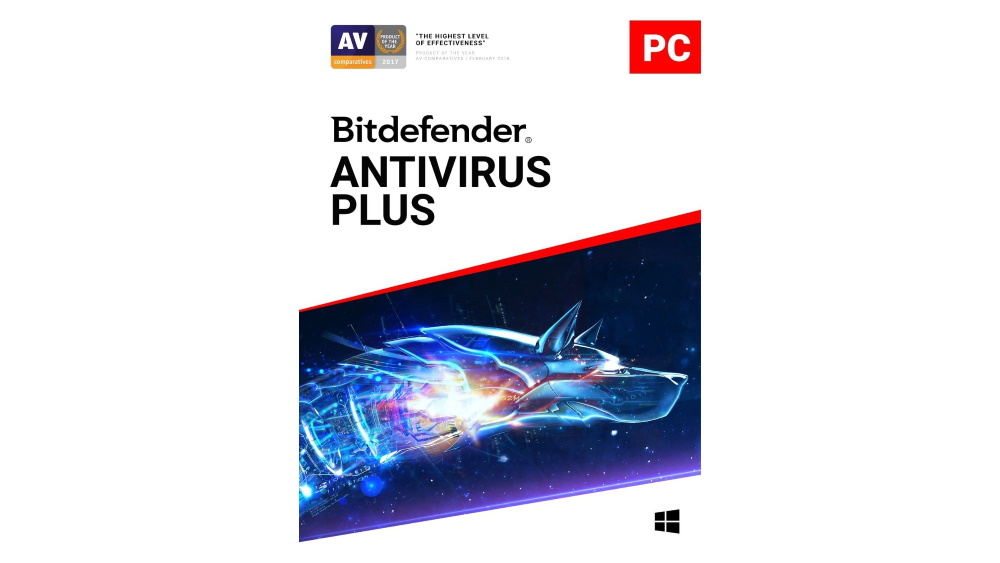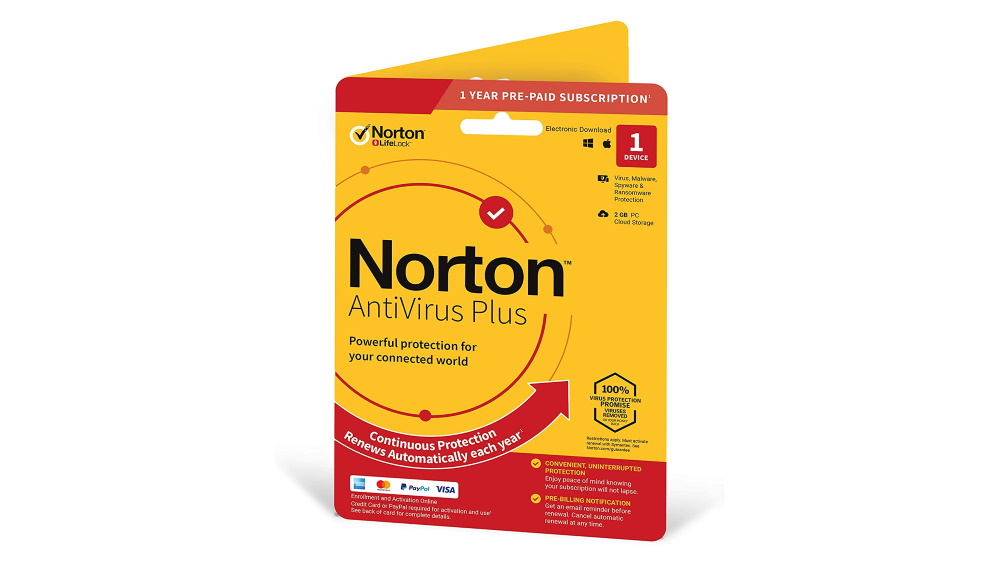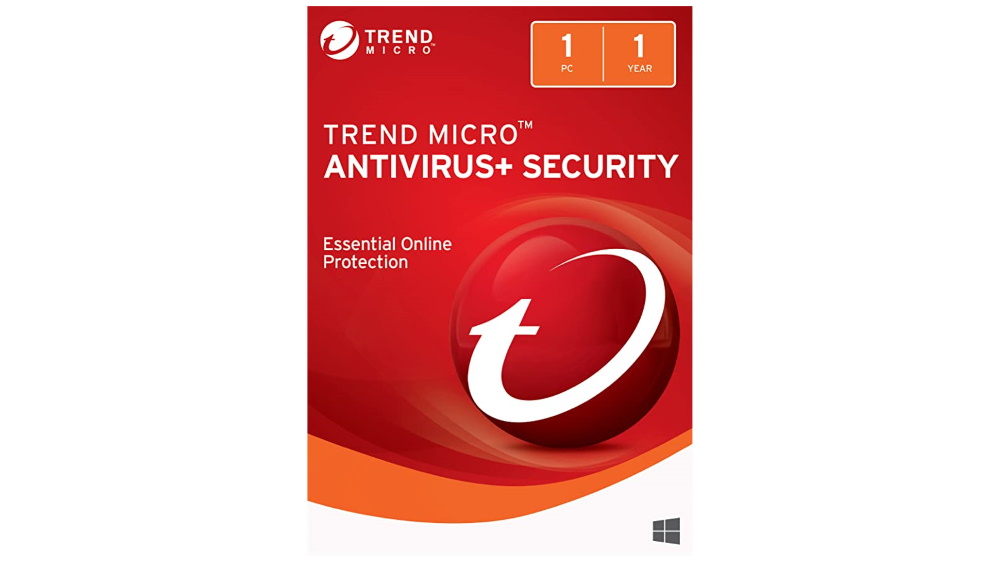Best Windows 10 antivirus for 2026
Take the first step towards securing your PC with a Windows 10 antivirus

If you're using a Windows system, you're a tempting target for hackers and cybercriminals—simply because Windows is the world's most popular PC operating system. The default antivirus on Windows has improved dramatically over the last few years, but the sheer number of users means there are still plenty of lurking threats. Luckily, a Windows 10 antivirus can help you out.
The reality is that you still need a regularly updated Windows antivirus package to keep you safe. Cyber criminals are always cooking up new ways to access your data and control your system, meaning your device protection needs to be up to the challenge.
From ransomware to fileless attacks and blended malware, there are plenty of threats out there no matter how careful you are online.
So, which are the best virus protecting products for Windows 10 you can get right now? Is Windows Defender sufficient to keep you safe these days? Or any free antivirus for that matter? Find out with TechRadar's guide to the best Windows 10 antivirus.
▶ Want to double down on your digital privacy? Check out the best VPNs.
The best Windows 10 antivirus in 2026
Take a look at our top picks to compare the industry's best antivirus solutions. We'll compare their features and security tools, reasons to subscribe, reasons to avoid, and what we liked best about each service—as well as just how much value for money you'll be getting.
The best Windows 10 antivirus overall
1. Bitdefender Antivirus Plus
Specifications
Reasons to buy
Reasons to avoid
Bitdefender Antivirus Plus delivers excellent antivirus protection for Windows 10 PCs, regularly being the top performer with independent antivirus testing labs. One of those big-name labs, AV-Comparatives, crowned Bitdefender as one of the ‘Outstanding Products of 2021’ in its year-end summary, and Bitdefender performed flawlessly in the lab’s latest real-world protection test, blocking 100% of threats with few false positives to boot.
As well as this superb core antivirus engine, you get very capable anti-ransomware protection, and Bitdefender Antivirus Plus is one of the best products out there when it comes to blocking malicious websites on Windows machines.
The package delivers a range of other features, including Safepay, a well-designed and fully secure browser that means you can carry out sensitive tasks like online banking. Plus there’s a password manager, vulnerability scanner, and a Wi-Fi Security Advisor which evaluates any wireless networks you use to pick up on any potential security issues. Oh, and a VPN is in here too, albeit a very limited service giving you just 200MB of daily traffic.
While it’s easy to use for beginners, Antivirus Plus also offers some more in-depth settings for example allowing you set up profiles with conditions like keeping any background activity to a minimum when you’re on a laptop using battery power. In the past, Bitdefender has been a bit more resource-hungry than some antivirus apps, but these days it runs with far less impact on system performance and does better than most rival products in this respect.
You get very capable anti-ransomware protection, albeit with a minor caveat. Namely that in our testing, we found that Bitdefender didn’t quarantine our simulated ransomware threat (though it did block this malware every time we ran it – so this made no practical difference to the defenses provided, and we remained perfectly safe).
But to sum up, this is a well-featured package with some very smart touches and, the icing on this malware-busting cake, is that it’s good value for money - particularly considering everything you get here.
For those who want more features still, there’s also a top-end package, Bitdefender Total Security, which is worth considering, adding functionality like PC maintenance tools (and bonus mobile apps that could come in handy). With discounts, this flagship product can work out as not much more expensive than Bitdefender Antivirus Plus – at least for the initial year of the subscription – so could be well worth a shot for some users.
The best Windows 10 antivirus with backup
2. Norton AntiVirus Plus
Specifications
Reasons to buy
Reasons to avoid
Norton AntiVirus Plus gives you coverage for just one PC, but if you only have a single Windows 10 computer that needs protecting from online threats, then it’s a sterling option for many good reasons.
The core malware protection provided is among the best in the business, the slight caveat being that Norton does tend to produce a few more false positives than most other antivirus providers in independent lab testing. It’s also worth bearing in mind that this package offers a novel touch for more tech-savvy types in the form of the Norton Insight tool, which gauges the reputation of any given file on your system helps pinpoint more obscure threats.
Furthermore, on the web, Norton AntiVirus Plus does a great job of blocking malicious sites, and you also get the Norton Smart Firewall that keeps you well-informed on any potential risks to your computer.
Bonus features include a password manager, useful PC maintenance and performance monitoring utilities, and a backup tool, which is an unusual inclusion for an entry-level antivirus. While the latter is limited to 2GB of online space, it can also be configured to back up files locally – and it’s commendably user-friendly.
Norton’s interface might be a little odd and quirky, and we found it was a bit heavier in terms of system resource usage than the average antivirus app. That said, other tests (by the independent labs) peg it as a middling performer in the latter department, and Norton AntiVirus Plus undoubtedly remains a great choice for those who simply want to protect their own Windows 10 PC and no other devices.
If you do want to cover more devices, look at Norton 360 Deluxe which defends up to five pieces of hardware, and delivers further security benefits including an integrated VPN.
The best multi-device Windows 10 antivirus
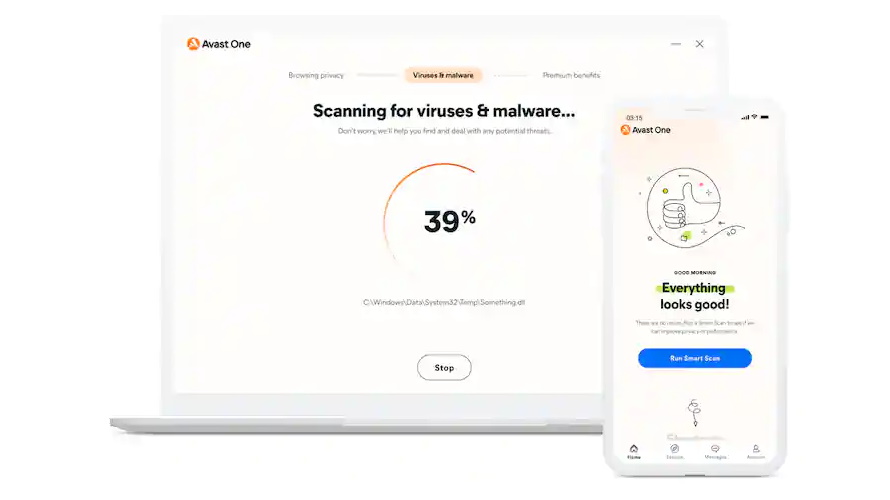
3. Avast One
Specifications
Reasons to buy
Reasons to avoid
Avast One is the firm’s all-in-one security package which delivers antivirus protection and a host of other benefits besides, including a built-in VPN service.
The Avast One Individual package covers five devices, and its antivirus engine is well-rated by the independent test labs, scoring highly in recent history and placing among the top-ranked vendors. On top of that, you get an added layer of solid ransomware defense, alongside excellent URL blocking skills to protect your web browsing.
This internet security suite isn’t just about antivirus, though, as it sports a bunch of other security extras including that VPN. It offers unlimited data and is suitably robust (powered by HideMyAss!), even if it isn’t the fastest one out there - Bitdefender’s integrated effort is far quicker, although it a much more limited service.
Avast One also has a software updater feature which is better implemented than most, along with webcam protection, plus a bunch of privacy tools including a Sensitive Data Shield that automatically finds files that might contain sensitive data, like names, addresses, or financial details, and stops anyone else using your device from accessing them. Furthermore, some PC maintenance tools are present, including a disk cleaner and performance booster (although the latter, and another module, the driver updater, need to be used with some caution, as we discuss in our full Avast One review).
Another positive facet here is that Avast One takes up very little in the way of resources, and indeed we found that it didn’t slow down our test PC one bit when reviewing the package (your mileage could vary, of course). It doesn’t hurt that Avast has really worked hard to polish the interface and make this product easy to use, too.
Overall, this is a well-rounded package, and while it’s not top of the field in some areas, Avast One is consistently strong enough across the board, providing a lot of features to make it a compelling buy. Also worth remembering is that if you want more devices covered than five, you get a beefy 30 pieces of hardware on the higher-tier Family plan.
The best of the rest
4. Trend Micro Antivirus+ Security
Specifications
Reasons to buy
Reasons to avoid
Trend Micro’s entry-level Windows 10 antivirus is another product which is designed for a single PC. Indeed, this baseline package is Windows-only, although there’s a separate app for Macs – and coverage for multiple devices via a flagship security suite, which we’ll come back to.
One of the major strengths of Trend Micro Antivirus Plus is that it puts an emphasis on making things easy for novice PC users. One of the best ways is does this is by avoiding jargon and instead explaining choices and settings in plain language. But while this is an easy to use suite, and a great choice for the less tech-savvy, more demanding users will probably want to steer away due to the lack of configurability and options available.
This product also benefits from a very good quality antivirus engine, with Trend Micro being one of the top performers going by the rankings from the independent test labs. That said, one slight weakness is more false positives, or errant detections of malware, occurring compared to the average antivirus.
Antivirus+ also delivers strong ransomware protection, with a dedicated Folder Shield that could help block even undiscovered ransomware trying to compromise your PC.
While Trend Micro Antivirus+ is rather heavy in terms of resource usage compared to rivals, overall it’s a high-quality antivirus package. True, it’s not loaded with features, but you do get impressive URL filtering and anti-phishing tech, plus a Pay Guard feature to keep your online banking secure.
Those wanting more features and coverage across multiple devices (or different platforms) should look at Trend Micro Maximum Security, which supports up to 10 devices (Windows, Mac, Android or iOS), and adds a secure file vault and password manager into the mix.
5. Microsoft Defender
Specifications
Reasons to buy
Reasons to avoid
Microsoft Defender is the built-in antivirus that comes with Windows 10 to be used as a default option if you don’t want to take the trouble to search for one yourself. While you might assume that it isn’t very high-quality as a result – and indeed Windows Defender, as it used to be known, was a questionable offering in the not-so-distant past – this antivirus is now a solid offering.
Indeed, it’s better than some of the big-name competition out there, and Microsoft Defender scored top marks in a recent evaluation by AV-Test, as well as being one of the middling performers in testing done by the other major independent lab AV-Comparatives.
Its defenses are robust enough, then, but bear in mind that what you don’t get is much in the way of features. Microsoft Defender is about the antivirus essentials only, complete with just a few extras: a basic firewall, URL blocking to keep you safer online, and some limited parental control options (which are Edge-only on the browser front).
If you want more than just the basics, and if you need top-notch protection, then you’ll be better served considering one of the above products – but that said, Microsoft Defender represents a reliable enough option now, and you can trust it to be true to its name and defend your PC. Defender offers the advantage of being free, and a no-hassle solution, as it is already pre-installed in Windows 10.
Editor's note: Kaspersky Anti-Virus for Windows used to appear on this list. Considering the current climate however, we've taken the decision to remove the provider. Although much of the company's core processes are now take place in Switzerland, the fact that its headquarters remain in Moscow and there have been previous allegations around government coercion, it feels prudent to use the provider with caution. And, when there are so many other excellent providers to choose from, it's impossible to whole-heartedly recommend Kaspersky at this time.
Is Microsoft Defender good enough to secure Windows 10?
Windows used to suffer from security vulnerabilities and malware attacks that only third-party antivirus packages could deal with. However, over the years, Microsoft has made a real effort to improve the security of Windows, not least with the inclusion of Microsoft Defender by default in Windows 10.
That said, in the past, Defender (formerly known as Windows Defender) has been regarded as a pretty poor solution—or 'better than nothing'. That isn’t true anymore, though: in fact, Defender now holds its own. One independent antivirus testing lab, AV-Test, rates Microsoft’s solution highly.
Defender has the added advantage of being a hassle-free solution that's already integrated with Windows 10. So, if you want basic protection that works, Defender is all you need. Plus, it's free!
Third-party antivirus apps do come with additional security and privacy features, however, that make them attractive choices in their own right.
Your system is secure with Defender, but if you want added peace of mind and extra functionality (like top-rated antivirus engines and extra anti-ransomware tools), Bitdefender Antivirus Plus, and our other top Windows 10 picks, are well worth checking out.
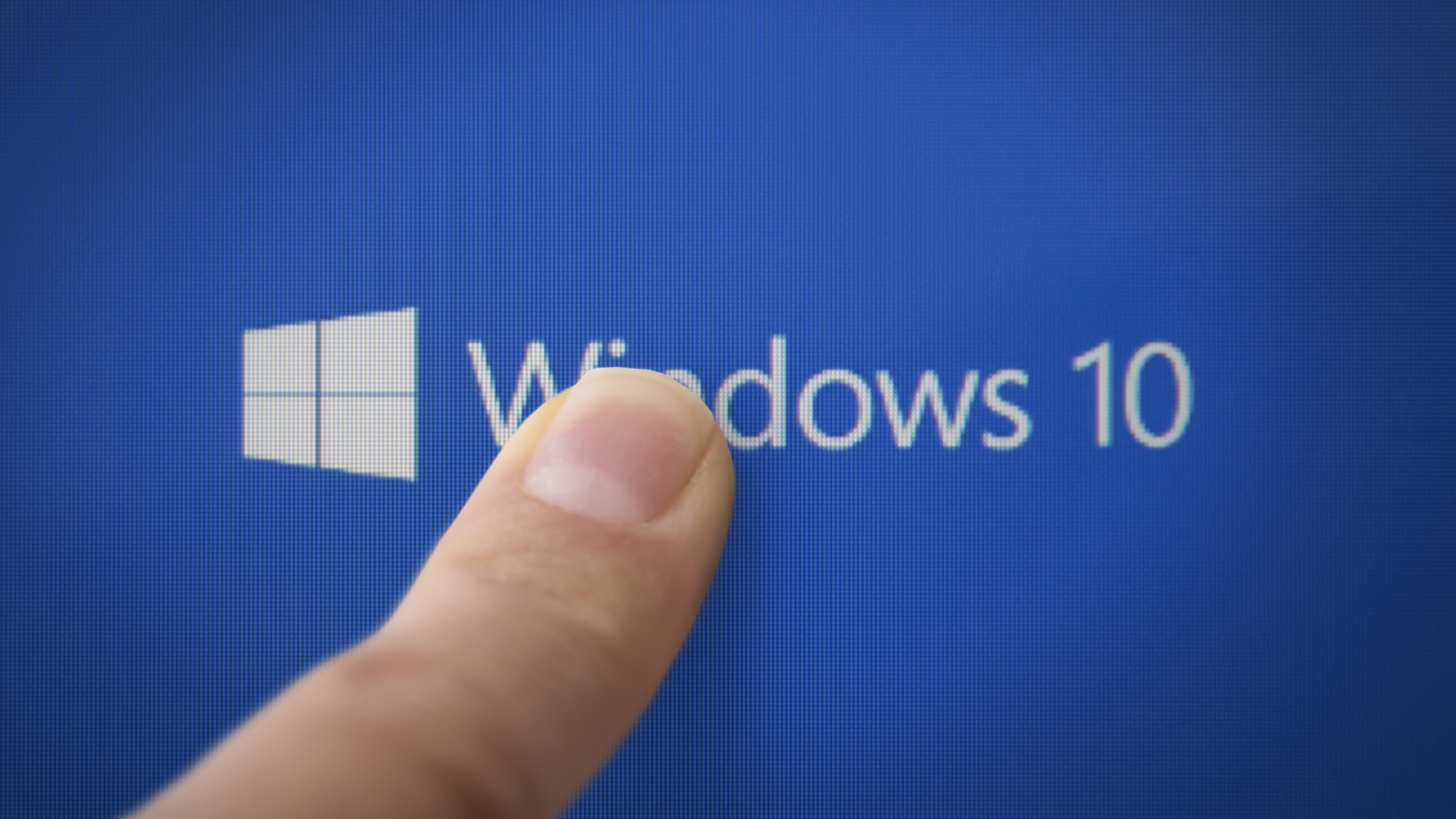
Should I get a free or premium antivirus?
If you're simply looking to protect your PC from viruses, trojans, and worms, then free Windows 10 antivirus from any reputable provider will keep you protected.
The difference with paid-for services is that they come with extra features that can shore up your security and even tune up your PC.
For example, a premium antivirus might come with ransomware protection and the ability to ensure that certain files or folders cannot be changed by third-party programs.
Some of our top picks even include a VPN, which will allow you to go about your day-to-day browsing with improved anonymity, and tools that can put a stop to tracking cookies that'd otherwise follow you around the web.
There are Windows antivirus packages that can tune up your PC, too, by removing junk files from temporary or cache folders, and fix registry issues that might be slowing your machine to a crawl.
▶ Having trouble with your computer? Learn how to start Windows 10 in Safe Mode.
If you like the sound of these bells and whistles, then you might even want to consider shelling out for a more complete internet security suite.
So, overall, if all you want is the most essential virus protection, then free software will do its job. However, if you want a wider range of malware protection, extra privacy controls, and even additional tools to help your PC run more smoothly, then paid-for anti-virus is your best bet.
Sign up for breaking news, reviews, opinion, top tech deals, and more.

Mike is a lead security reviewer at Future, where he stress-tests VPNs, antivirus and more to find out which services are sure to keep you safe, and which are best avoided. Mike began his career as a lead software developer in the engineering world, where his creations were used by big-name companies from Rolls Royce to British Nuclear Fuels and British Aerospace. The early PC viruses caught Mike's attention, and he developed an interest in analyzing malware, and learning the low-level technical details of how Windows and network security work under the hood.
